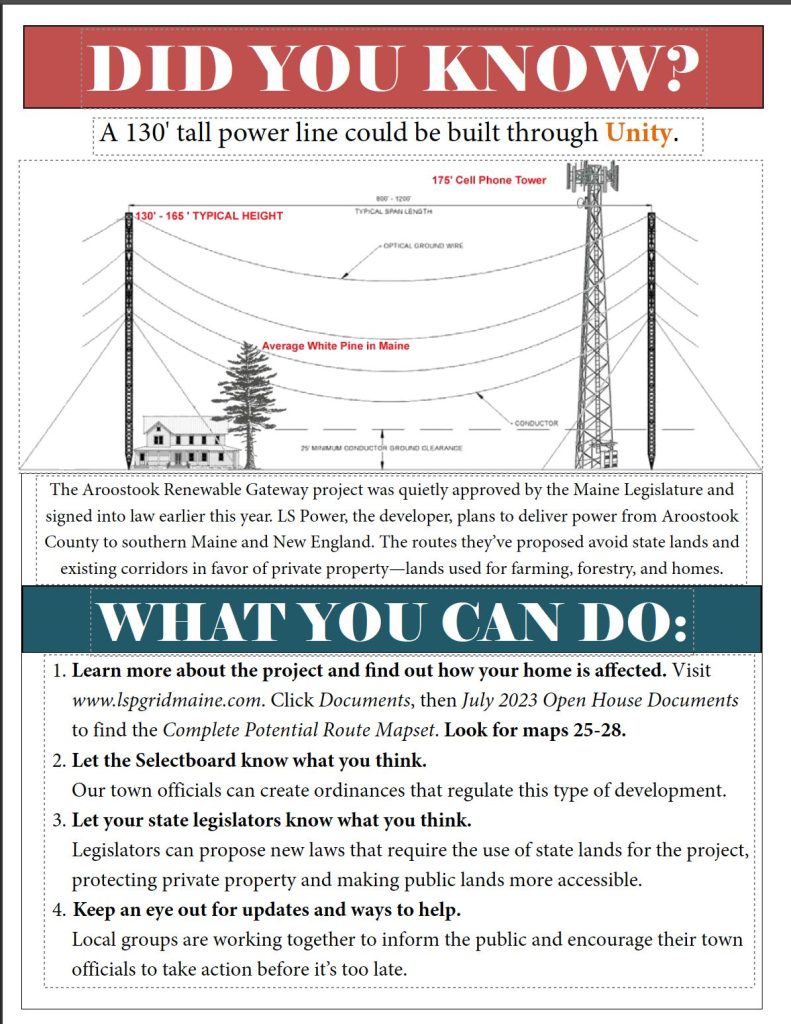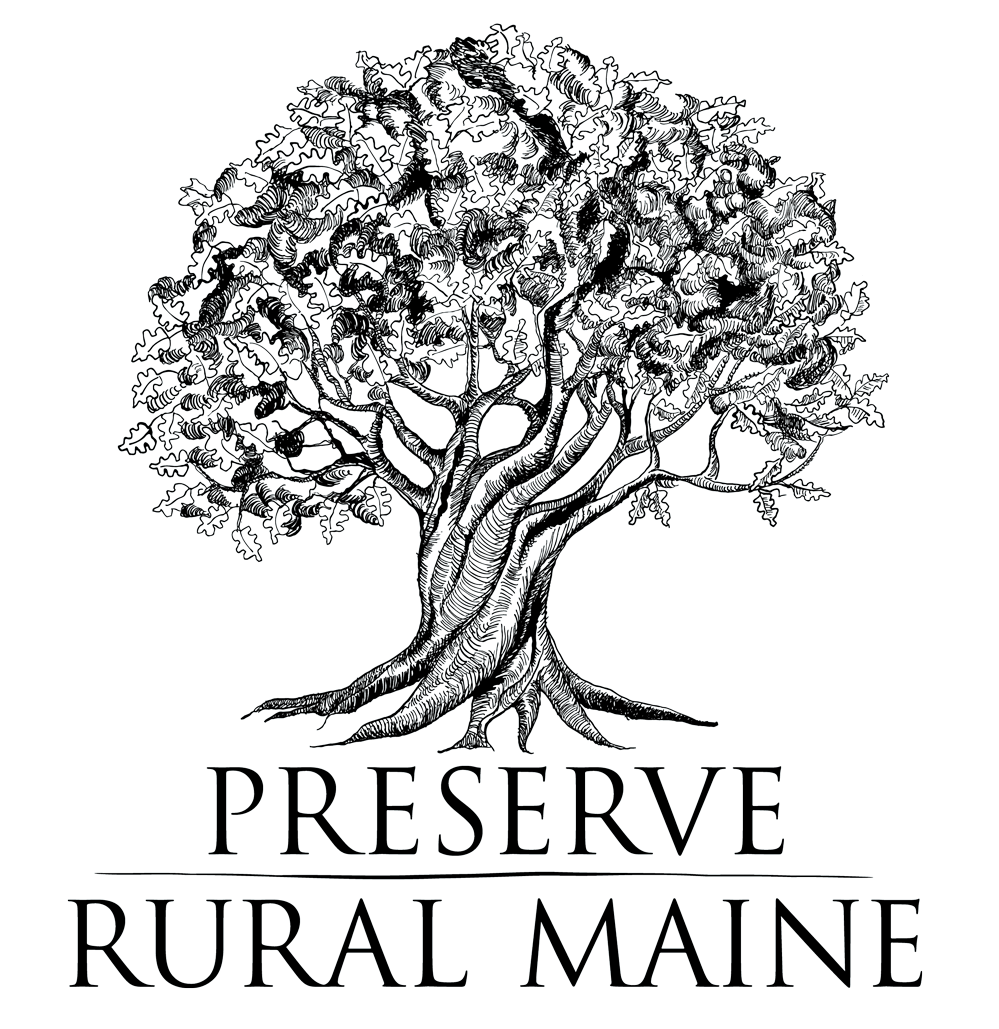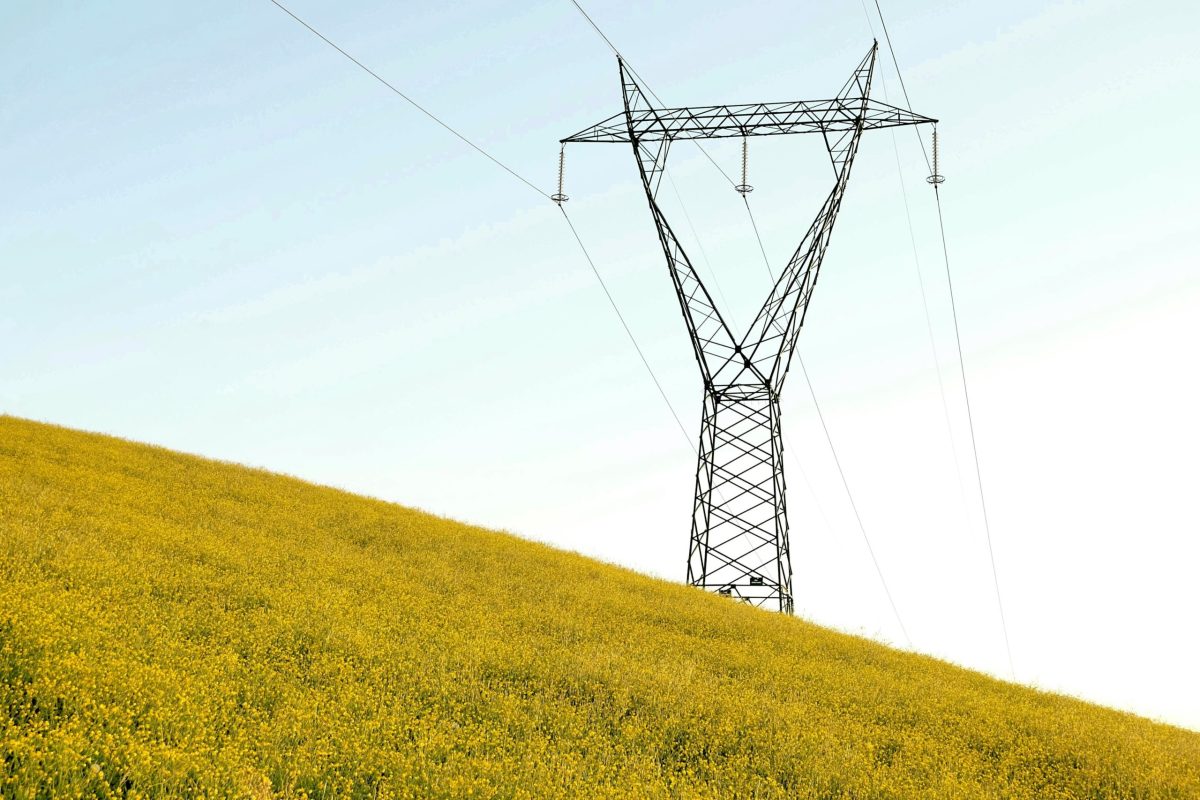The second Northern Maine Renewable Energy RFI was released in May, 2024. It is tracked at docket 2024-00099. Preserve Rural Maine will respond to this RFI and we will post our response here.
Prior to the first attempted procurement, the PUC posted an RFI that was public: 2021-00223. Unlike in 2021, the PUC has decided this this RFI should be private.
Background on the Procurement
In late June of 2023, approximately 3500 citizens, residents, and landowners in 40+ rural towns in central Maine received a letter. This letter appeared to be marketing and many recipients threw it in the trash. In reality, it was a smoothly worded warning that their land had been targeted as a “host” for a proposed transmission line.
This transmission line was proposed to run 150 miles, from Aroostook County to the Coopers Mills Substation near Windsor, Maine. It was planned to be 150 foot tall towers and required a 150 foot wide cleared easement.
For context, the wooden H-frame towers that are familiar in this central Maine region are about 80 feet tall. White pine trees, generally the tallest trees in the area, are also 60-80 feet tall. This is an informational poster provided by concerned residents in Unity:

Tanya Blanchard, the founder of Preserve Rural Maine, received a letter and discovered this giant transmission line was proposed only a few hundred feet from her house.
Maine law allows Transmission & Distribution (T&D) Utilities to use eminent domain to take land, but not to take people’s homes. Easements taken through this type of eminent domain must be 300 feet or more from residences.
However, Tanya knew that the proximity of this proposed line would decrease her property values, impact her privacy, possibly expose her gardens to transient pesticides and herbicides, and disturb the quiet – especially during construction.
She decided to work with her concerned friends and neighbors, and founded Preserve Rural Maine as a tax-exempt membership based non-profit.
Tanya also formed a facebook group, which rapidly grew to over 1200 members. This group is separate from Preserve Rural Maine, and can be found here.
The rest of 2023 was spent in educating neighbors, selectboards, and local politicians.
Preserve Rural Maine petitioned for Intervenor status in the Maine Public Utilities Commission docket (2021-00369) which tracked the transmission line process. We were denied this participation because the PUC considered the docket to be “non-adjudicatory” and they indicated we would be allowed to formally intervene when the process went to a Certificate of Public Convenience and Necessity (CPCN). A CPCN is the status which gives a utility the right to use eminent domain.
In late December 2023, the Public Utilities Commission (PUC) terminated the procurement, due to an inability to come to a negotiated agreement on price with the winning bidder.
However, the PUC indicated that they would re-procure the transmission line in the future. In May 2024, the PUC began the process of opening the procurement a second time with a Request for Information (RFI). This is tracked in docket number 2024-00099.
In 2024, we followed closely relevant legislation in front of the Energy, Utilities, and Technology (EUT) Committee at the Maine State Legislature. The pieces that stood directly to impact our future included:
LD 1963: This Act updated LD 1710, the legislation which originated the novel procurement of a transmission line in order to support renewable energy policies. Preserve Rural Maine provided testimony in opposition to this Act. This legislation was passed.
LD 2087: This Act protects private property owners by strengthen the laws around T&D use of eminent domain. Preserve Rural Maine supported this Act. This legislation was passed out of committee unanimously and signed by the Governor.
LD 2205: This Resolve aimed direct the Governor’s Energy Office to Conduct a study about the future of electric transmission needs in the state. Preserve Rural Maine supported this Resolve. This legislation was passed out of committee unanimously, and passed appropriations committee unanimously. It was not signed by the Governor. Our understanding is due to a technical error and running out of time, this legislation- despite being voted in – did not become law.
What is next?
In the remainder of 2024, Preserve Rural Maine will:
- provide a response to the May 2024 RFI put forward by the PUC
- provide responses to the expected future Request for Proposal (RFP)
- attempt to intervene in the future RFP.
- plan for intervention in the future CPCN process
- write and review FOAA requests (Freedom of Access Act – Maine’s Freedom of Information Act)
- continue to educate concerned residents through facebook, newsletters, and meetings


Leave a Reply